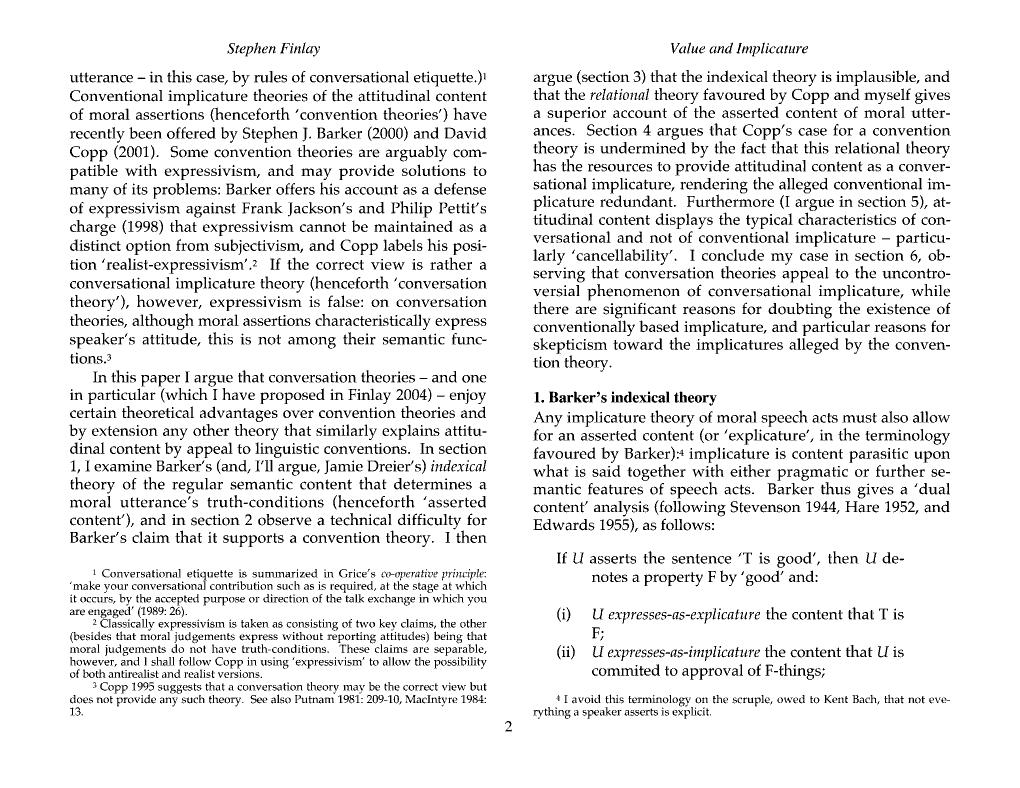Value and Implicature
Skip other details (including permanent urls, DOI, citation information): This work is licensed under a Creative Commons Attribution-NonCommercial-NoDerivatives 3.0 License. Please contact [email protected] to use this work in a way not covered by the license.
For more information, read Michigan Publishing's access and usage policy.
Abstract
Moral assertions express attitudes, but it is unclear how. This paper examines proposals by David Copp, Stephen Barker, and myself that moral attitudes are expressed as implicature (Grice), and Copp's and Barker's claim that this supports expressivism about moral speech acts. I reject this claim on the ground that implicatures of attitude are more plausibly conversational than conventional. I argue that Copp's and my own relational theory of moral assertions is superior to the indexical theory offered by Barker and Jamie Dreier, and that since the relational theory supports conversational implicatures of attitude, expressive conventions would be redundant. Furthermore, moral expressions of attitude behave like conversational and not conventional implicatures, and there are reasons for doubting that conventions of the suggested kind could exist.



